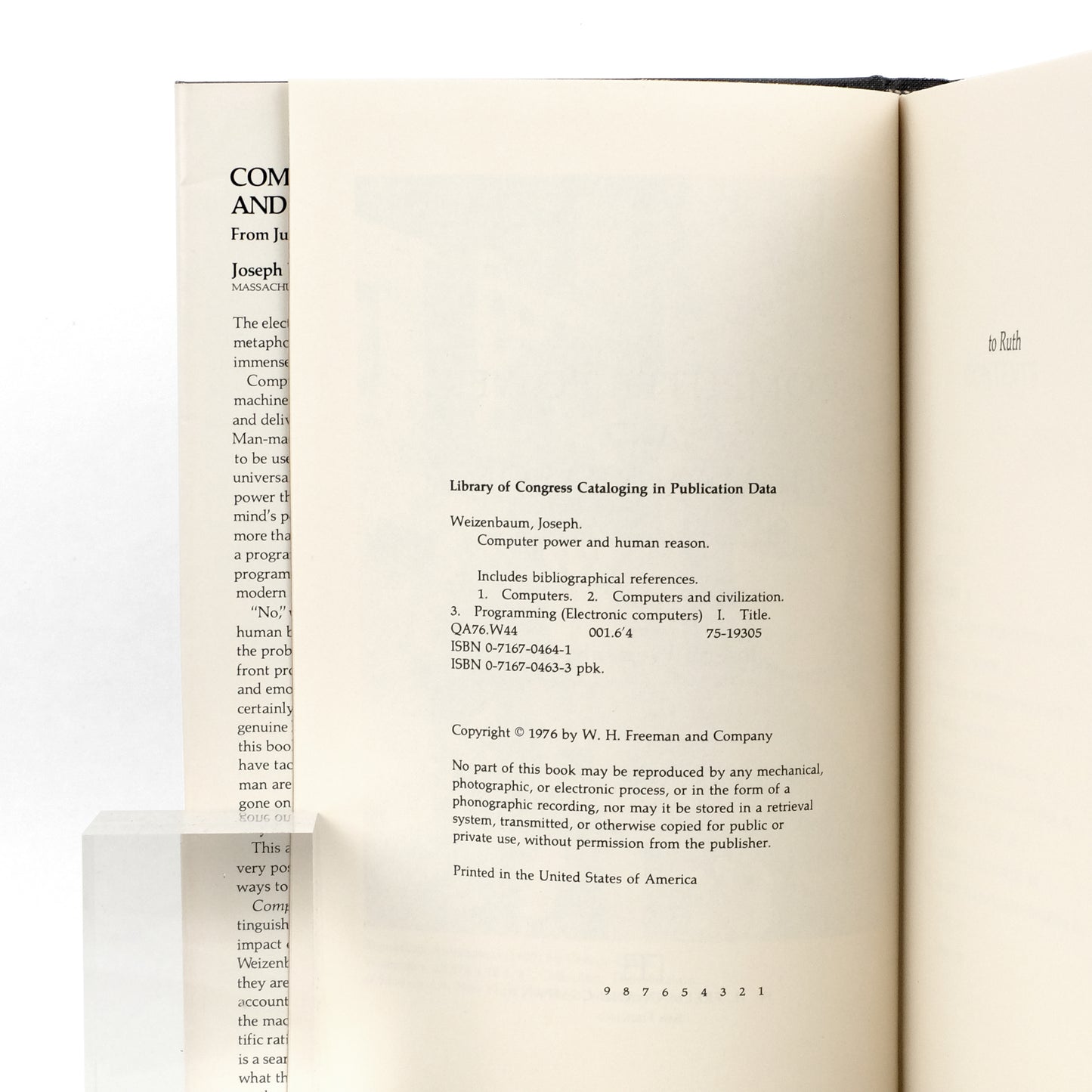WEIZENBAUM, Joseph
WEIZENBAUM, Joseph
San Francisco: W. H. Freeman and Company, 1976. First edition. xii, 300pp; index. Gray cloth; dust jacket. Mild rubbing to board tips, else fine in a jacket with minor wear at spine ends.
Sharp first printing of this important work of scientific ethics by German-American computer scientist Joseph Weizenbaum (1923-2008), a key figure in the history of artificial intelligence. In 1966, Weizenbaum created the natural language processing system ELIZA, which utilized pattern-matching rules to generate replies, making it in essence the first chatbot—a direct predecessor to the AI technology of today. Here Weizenbaum gives voice to his concerns about the blind optimism he saw, from colleagues and lay-people alike, regarding AI's potential to mimic the functioning of the human brain. The very concept of "artificial intelligence," he argues, insofar as it raises machines to the status of human beings, represents a form of technological imperialism, reducing human beings to mere machines. The book rests on his central distinction that, while artificial intelligence is capable of making decisions, which are based on calculations, it remains fundamentally unable to make choices, which are based on judgments—a purely human facility. A work of vital importance, particularly in our current climate where technology's ideologues seem less comfortable than ever engaging with the philosophical implications of their creations.
Couldn't load pickup availability












